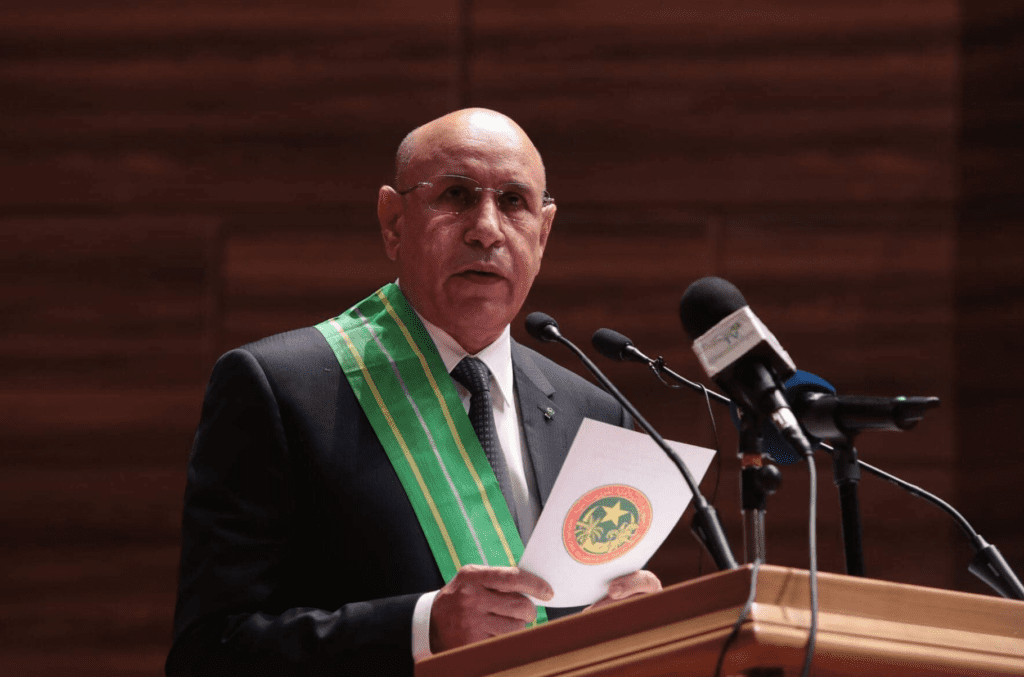Mauritanian journalist Bakari Guèye said the advent of a new government in his country is the result of the president’s desire to give substance to his campaign promises.
Why did President Mohamed Ould Ghazouani decide to change prime minister when he had just completed his first year in power?
President Ghazouani came with a very ambitious programme. His accession to power had raised many hopes which, unfortunately, have been virtually disappointed. After a year with mixed results, we had to get the ball rolling again. This explains the change of Prime Minister.
The latter’s mission will be to breathe new hope into Mauritanians and above all to achieve concrete results in the implementation of the Head of State’s programme. The PM had promised to get Mauritanians out of the difficult situation in which they find themselves.
Who is this new Prime Minister and why was he chosen?
His name is Mohamed Ould Bilal. He was born in 1963 in Rosso on the Mauritania and Senegal border. He is a trained hydraulic engineer. He was trained in Algeria. After his studies, in the early 1990s, he returned to Mauritania to take up important positions.
From 1993 to 2000, he led a project for the Food Security Commission in Assaba (east) which is part of the fight against poverty. He also worked as a Consultant at the Urban Development Agency (ADU), a government structure. In 2002, he was appointed Director of Infrastructure in the aforementioned agency. He joined the government in 2007 as Minister of Public Works, Urban and Regional Planning. He then left the government.
Under Mohamed Ould Abdel Aziz in 2008, he briefly served as Director of the Mauritanian Electricity Company (SOMALEC). He did not last very long, apparently because of a conflict with the former president of the Republic. It is said to have been related to procurement at that company. He is deemed to be a gentleman who is very observant of orthodox rules. So he could not understand President Aziz who disembarked him. Since the summer of 2019, he had been an advisor to the Prime Minister who had just been dismissed.
The current Prime Minister is considered a technocrat. Ghazouani chose him not only for that but also for his youth and his detachment from politics. Mohamed Ould Bilal has already proven himself. It is for this reason that he was appointed to this post.
Does the new government mark a break with the old cabinet or is it a continuation of the old one?
I believe that the new government that has just been put in place is both a break and a continuity of the old team. A break because all the ministers from the old regime, who were in the first government, were not reappointed except for one: the Minister of Higher Education and Scientific Research.
All of these ministers were cited in the report of the parliamentary commission of inquiry into the misappropriation of public funds over the last decade. These dismissals were, moreover, a very pressing public demand. On top of that, there were eight new ministers, and not the least of them, who came to strengthen the government team.
Among them is a Minister of Sovereignty, the Minister of Justice, Mohamed Mahmoud Ould Cheikh Abdullah Ould Boya. He is a former state clerk, a former diplomat. There is also the appointment of a new Minister of Culture in the person of Lemrabott Ould Bennahi, who was the spokesman for the Parliamentary Commission of Inquiry. This entity is taken very seriously by the government.
There is also a new Minister of Economy, Ousmane Mamoudou Kane. He is an expert in this field known both in Africa and internationally. His main task will be to revive the Mauritanian economy in the wake of the Covid-19 crisis that has deeply affected the country. Finally, there is a new Minister of Petroleum. This is a profound reshuffle; a way for President Ghazouani to inject fresh blood into his government so that it can meet the expectations of Mauritanians who are really starting to get impatient.
ID/te/lb/abj/APA


